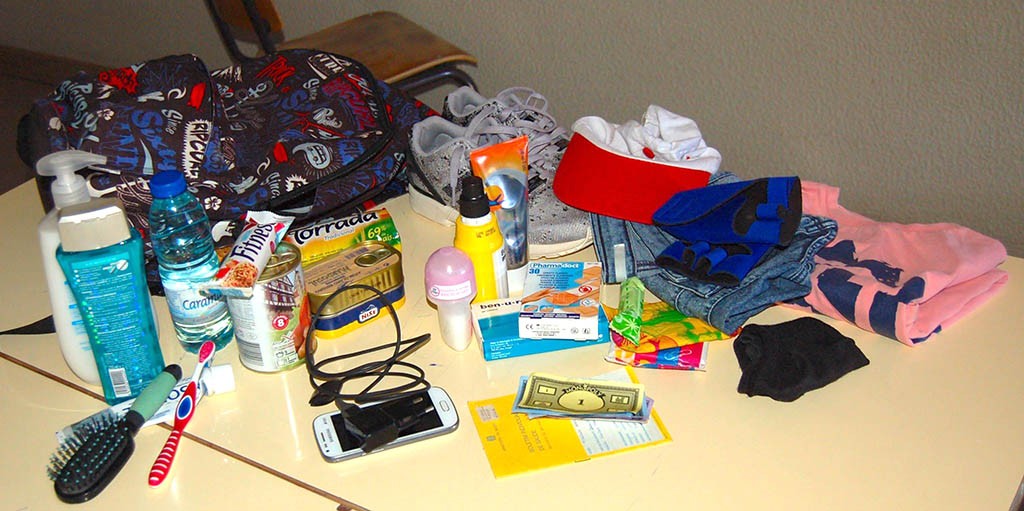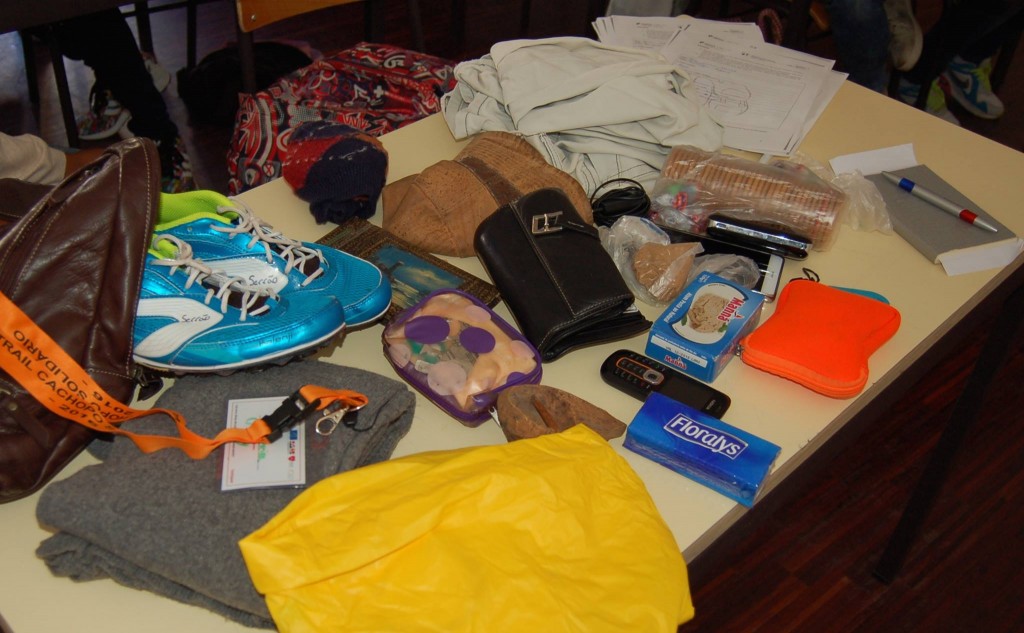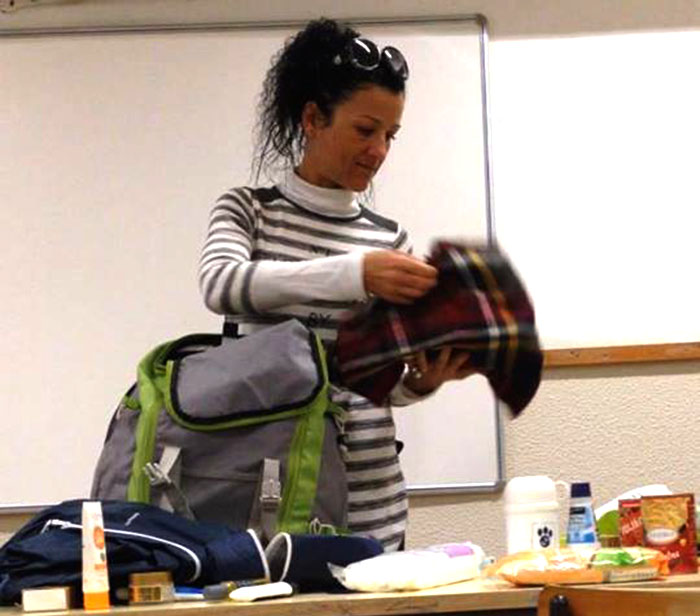 Few dispense with the cell phone or tablet, others focus on bringing lots of clothes or food, and there are those who give more importance to putting their favorite toy or even books in their luggage. Each of us, if we had to pack a suitcase to leave, in a hurry, fleeing war and destruction, would make different choices. Students at the João da Rosa School Group, in Olhão, are no different.
Few dispense with the cell phone or tablet, others focus on bringing lots of clothes or food, and there are those who give more importance to putting their favorite toy or even books in their luggage. Each of us, if we had to pack a suitcase to leave, in a hurry, fleeing war and destruction, would make different choices. Students at the João da Rosa School Group, in Olhão, are no different.
This was one of around 600 Portuguese educational establishments to join the «What if it were me?» initiative, to raise awareness and alert to the situation faced by refugees. The premise of this action was simple: challenge the elements of school communities to perform the virtual exercise of picking up a suitcase and filling it with whatever they could carry and considered essential.
In Olhão «there was a surprising adhesion from everyone», from teachers to students, but also from their families. During the morning of Wednesday, the classrooms of the different establishments of the grouping of schools, whose headquarters is "an intercultural school", where young people from more than 20 countries live together, were filled with "refugees", who showed the content. of your bags.

These backpacks were taken to school and their contents were shared by some of the students. O Sul Informação He heard testimonies from students in an 8th grade class, from teacher Mónia Mesquita (who set an example and also prepared a backpack), which illustrate well how the choices vary, from person to person.
One of the students packed a suitcase in which she was carrying 'napkins, biscuits, a loaf of milk, lemon, juice, a box of glasses, sanitary towels, saline, alcohol, atarax, plasters, compresses, lipsticks, make-up, a charger, family photos, a Justin Bieber book, deodorant and perfume».
The young woman from Olhao even caused a fright at home. "My parents thought I was going to run away from home," he said, laughing, in the testimony he gave in the classroom.
A colleague from the same class made, in some cases, different choices, and even explains why. «I bring water and soft drinks, in case you need sugar for energy, canned goods, a pocketknife, wallet with money and identification, flashlights and extra batteries, underwear, two pairs of sneakers, hat, family souvenirs, mobile phone and charger if possible, headphones, a comb, medicines and plasters, matches, alcohol and a towel».
These are just examples, but they illustrate well what happened yesterday at João da Rosa. «I ran the first cycle and even pre-school. We still had some fear with the little ones, but the funny thing is that most of the kids understood what was involved. From the outset, they were concerned about bringing small backpacks, as they were aware that they would have to walk a long time and, eventually, have to take a boat», he told the Sul Informação Luís Felício, director of the João da Rosa grouping.
In this school even “there are kids who either they or their parents were refugees, namely Romanians”. The testimonies of colleagues and the exercise proposed by "What if it were me?" led to the children and young people of João da Rosa "going down a little to the ground".

This initiative by the Refugee Support Platform (PAR), the High Commission for Migration, the National Youth Council (CNJ) and the Directorate-General for Education (DGE) also promoted the screening of a film with testimonies of refugees, in that they reveal what they brought with them when they left their homes. In addition, there was a prior discussion and exercises on this topic in the classrooms.
In some cases, the students had a negative perception of refugees. “Many of them got a different idea after seeing the movies. And it was good, too, for the adults, because, although we can be sensitized, it's something that we don't expect to happen to us one day», illustrated the group's director.
Parents were also involved in this action, with the Parents Association of the group joining forces with the management, so that the initiative was a success.
“The information came to us last week, right on top of the event. I immediately said yes, as there was no time to listen to the teachers. But soon I started to feel that everyone was joining. In addition, we proudly display the symbol of an intercultural school at the door, and this is another way of highlighting it», he said.
The school community “did their utmost and everyone gave their contribution”, which leads to believe that, as of yesterday, intercultural tolerance was reinforced, in the João da Rosa School Group and in many others in the country.


















Comments